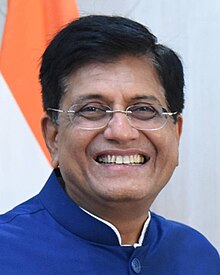Union Commerce and Industry Minister Piyush Goyal announced plans for India and the United States to negotiate a robust bilateral trade agreement, aiming to double trade between the two nations to $500 billion by 2030. Speaking at the Invest Kerala Global Summit , Goyal described the forthcoming pact as the “mother of all deals,” emphasizing its potential to create significant opportunities for collaboration between Indian and American businesses.
The minister highlighted that the two countries are set to commence discussions with the Trump administration to establish a strong economic engagement. This initiative seeks to leverage the complementary strengths of both economies, fostering mutual growth in a turbulent global landscape. Goyal’s optimism reflects the commitment of both nations to enhance their Comprehensive Strategic Partnership, building upon the rapport between Prime Minister Narendra Modi and President Donald Trump.
India’s export performance has been noteworthy, with exports reaching $778.21 billion in the fiscal year 2023-24, marking a 67% increase from $466 billion in 2013-14. This surge encompasses both merchandise and services sectors, with merchandise exports at $437 billion and services exports at $341 billion. Key contributors to this growth include sectors such as electronics, pharmaceuticals, engineering goods, iron ore, and textiles. The United States remains a significant trading partner, with India enjoying a trade surplus in this bilateral relationship.
In addition to the overarching trade agreement, Goyal indicated that both nations are considering offering tariff reductions and other concessions to each other. This move aims to facilitate smoother trade flows and address existing barriers, thereby enhancing economic cooperation. The minister’s remarks suggest a proactive approach to resolving trade frictions and building a more conducive environment for bilateral commerce.
The proposed trade deal is expected to be finalized by the end of 2025, instilling confidence among businesses in both countries. The agreement seeks to capitalize on the competitive strengths of India and the U.S., promoting domestic manufacturing through initiatives like the National Manufacturing Mission. This mission aims to address challenges faced by the manufacturing sector, particularly small and medium-sized enterprises, making “Make in India” more competitive on the global stage.
India and the U.S. have recently signed a memorandum of understanding to strengthen supply chains for critical minerals such as lithium and cobalt, essential for electric vehicles and clean energy sectors. This collaboration aims to build resilience in critical mineral supply chains through joint commercial development in exploration, extraction, processing, recycling, and recovery. The inclusion of third countries, especially mineral-rich nations in Africa and South America, is also being considered to diversify and secure these essential resources.
The evolving trade policies under President Trump’s administration are perceived by Indian officials as opportunities rather than challenges. Goyal emphasized that the changing U.S. trade policy could create more business opportunities for domestic enterprises, as products from both countries often complement rather than compete with each other. This perspective underscores a strategic approach to international trade, focusing on collaboration and mutual benefit.
The commitment to enhancing economic ties is further evidenced by India’s active engagement in global trade agreements. Beyond the U.S., India is expanding partnerships with other nations, including Australia and members of the European Free Trade Association. These efforts reflect India’s growing relevance on the global stage and its dedication to forging alliances that bolster economic growth and stability.




 Tamil Nadu Congress Leaders Seek Gandhi Siblings’ Intervention
Tamil Nadu Congress Leaders Seek Gandhi Siblings’ Intervention 